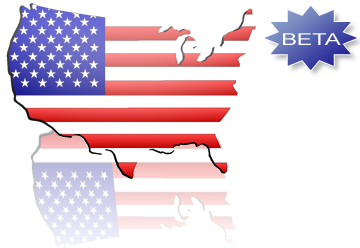Power and Corruption
Posted by Scott BannonThe fight to protect your privacy is about far more than your privacy
While a majority of people have heard–and to some extent agree with–the grand cliche that “the root of all evil is money”, when it comes to those in federal offices money is rarely, if ever, the motivation behind seeking their positions.
In-fact, most who hold public office would earn far more money in the private sector in just one year than they’ll earn for an entire term in public office.
So, what is the motivation for seeking public office then? To serve their constituents? To improve our nation and better shape the future? Perhaps on some level these ideas apply, but the practical cynic in me believes the real motivator for most politicians (and aspiring politicians) is power.
Let’s face it, for competitive Alpha-personalities in America who rise to the top of the heap, there’s usually one of only two driving forces behind them, money or power. Since we know the money is low in politics compared to what could be made privately, it seems power is the only logical choice left.
This cynical perspective may not be widely or openly accepted, but there’s no denying that it’s in the back of most people’s minds. Think of the success enjoyed by George Orwell’s “1984″. It stemmed from this very notion, that power hungry leaders will use and abuse the powers ‘we the people’ gave them to negatively reshape the future and take full control over our lives.
It’s the deep-rooted divide between the ‘right to privacy’ debates that take place everyday and on every level of society and government in America.
It’s the fuel behind the recent uproar and media blitz over President Bush’s NSA wire tapping program. Nobody opposes the idea of listening to terrorist’s phone calls or reading their e-mails, but it’s a little scary to know that without oversight the possibility exists for your own phone calls to be monitored, your own e-mails read; and the public reaction made clear to me that a majority of people, perhaps in part because history shows that power and corruption are so often synonymous, weren’t willing to accept a Presidential “trust me” on this.
The issue of privacy is in the headlines today because of a court case between Internet Search Engine, Google Inc., and the Department of Justice. The Department of Justice recently demanded large volumes of internet user’s search records and statistics from Google, along with several other companies offering similar online services, to use for research and in the defense of COPA (Child Online Protection Act), an Internet censorship law that was blocked by the Supreme Court in 2004 as unconstitutional.
While the Department of Justice has maintained that their requests do not include identifying or other personal information, the fact is that’s simply not true. There is an Internet phenomenon known as “Googling Yourself”, wherein people search for their own name, address, phone number, social security number and etc., for various reasons. Some do it for vanity, some do it while researching geneology, and some–like myself–have done it to ensure that certain private information hasn’t been published online anywhere.
These search terms are exactly the type of information that would be included in the data requested by the Department of Justice.
The Department of Justice has stated that they need this information to study how children are exposed to adult natured material when innocently searching for non-adult natured topics. The argument can easily be made that a random sampling of search results from Google and other search engines makes no sense for this type of study since the results may not contain a single search made by a child in the first place. It would seem that a more logical and fruitful study would be one that actually observed the Internet habits of children and not random results from the general public.
But, despite how fishy the reasoning sounds I won’t go so far as to say the Department of Justice is on a “fishing expedition”. Instead, I believe their motives are sincere, simply misguided and likely to cost taxpayers a fortune to ultimately yield no results what so ever.
Software already exists, most of it is freely available, that will block adult material on your home computer. Most PC’s that are sold with Microsoft Windows pre-installed actually have this software pre-installed as well. Some, including the Department of Justice in this case, have claimed that this software isn’t adequate to protect children. Again, that simply isn’t true. Many of these parental control programs are not only good, they’re too good. They’re so aggressive in the filtering process that legitimate non-adult material is often flagged and blocked by them.
The real problem, and the argument I’ve heard most, is that many parents lack the knowledge and/or understanding to properly use these programs and so leave their home computer open to displaying adult material to their children.
I can’t argue with that, I accept it to be accurate. However, the federal government is not the nation’s babysitter and parents have a responsibility to educate themselves before allowing their children to use the computer at home in an unsupervised environment.
A computer is a tool. In this respect, it’s no different than the weed trimmer or that chain-saw in the garage. Would any parent allow their children to use these devices unsupervised without first being sure the child understood how to handle it properly? Would you let your teenager use the chain-saw without making sure he or she had safety goggles to wear? Of-course not.
Yet, many parents are completely comfortable in neglecting and denying their personal accountability and parental responsibility when it comes to computers and instead would like the government to protect their children from viewing adult materials by placing special censors and restrictions on legitimate businesses.
Businesses that aren’t targeting minors in the first place I would add. Adult Entertainment web sites make their money from people with credit cards. They sell subscription services and products online. Their target market is adults who can pay, not children who don’t have credit cards and only waste their time, server resources and bandwidth.
If the Department of Justice really wanted to protect children online, it seems to me the easiest way would be to run a low-cost program that educates parents on the availability and use of software filters that already exist and then use the remainder of their money that’s being wasted on this right now to aggressively combat the hordes of pedophile predators out there who are trying to reach children on Internet chat programs and popular ‘hang-out’ web sites where children tend to assemble.
Stopping those pond-scum would be a noble cause and valid use of taxpayer’s dollars. Lengthy studies and continued litigation to push through special laws and regulations that unfairly target legitimate businesses while doing absolutely nothing to truly protect children is just another example of power and corruption walking hand in hand.
Image source: playfuls.com


 buxtohispano.com
buxtohispano.com 

































